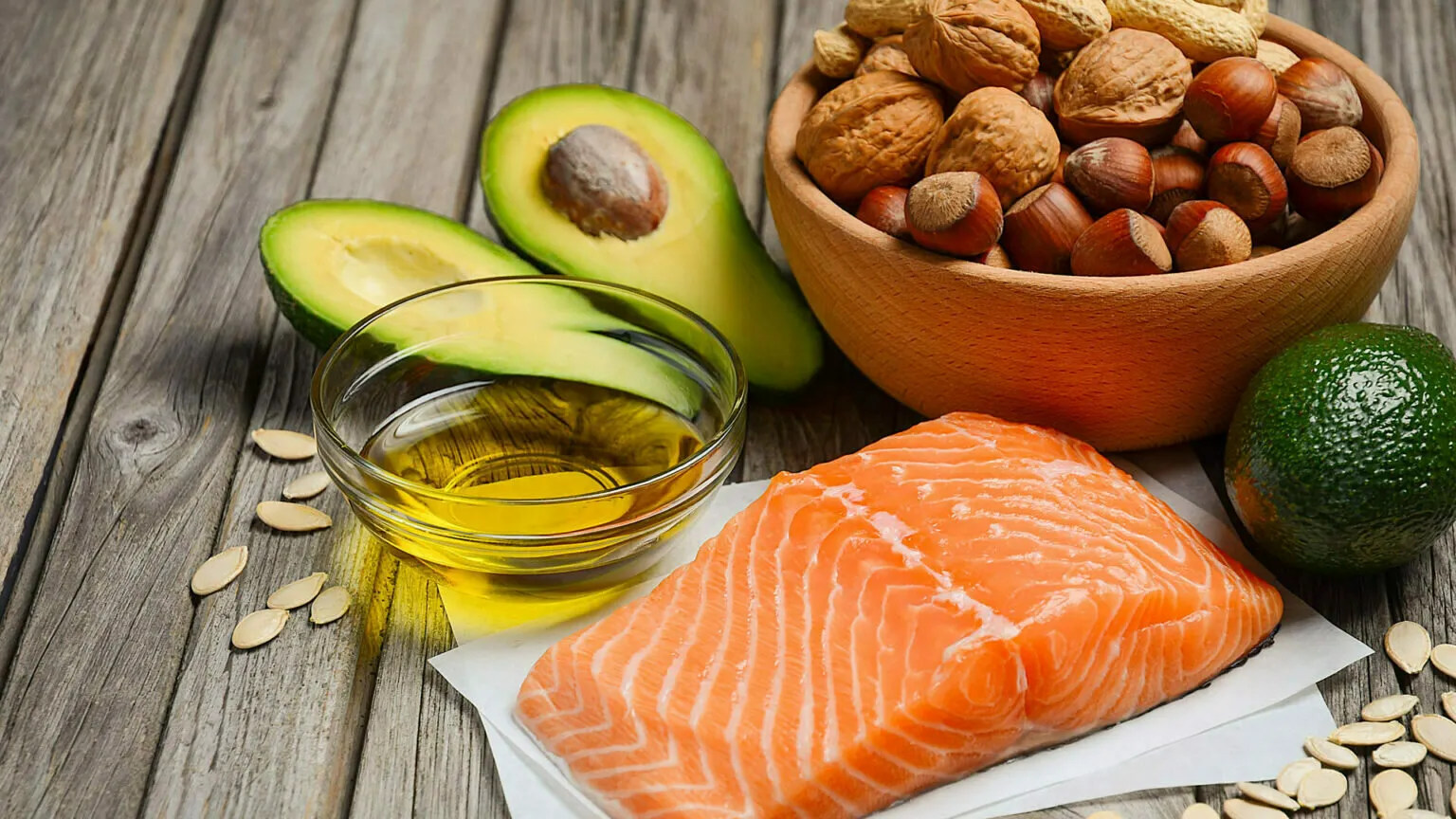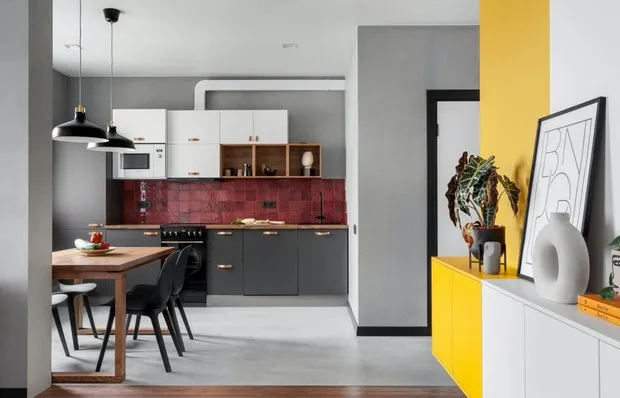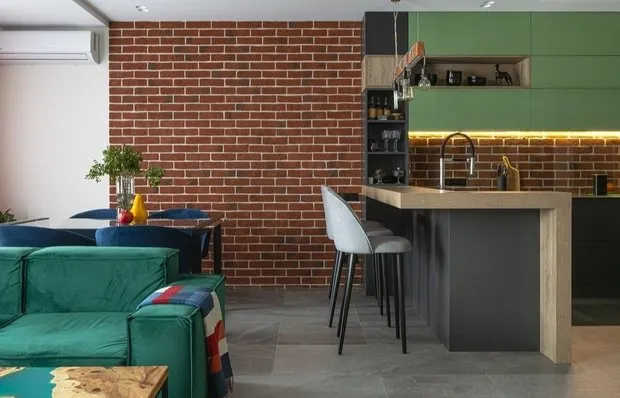There can be your advertisement
300x150
Hormones and Nutrition: How What We Eat Affects Our Mood and Well-Being
How the choice of food affects our mood, emotional state, and overall well-being
Have you ever wondered why after a hearty lunch you want to sleep, and a piece of chocolate lifts your mood? It turns out the connection between food and our well-being is much deeper than we usually think. Let's explore how what we eat affects our hormones and emotions.
Serotonin: Why Pasta Makes Us Happy?
Is the feeling of calm after a plate of pasta familiar to you? It's not by accident. Carbohydrates stimulate the production of 'happiness hormone' - serotonin. That's why many of us crave sweets or flour-based foods when we're sad.
But don't rush to fill your fridge with cookies. It's important to choose complex carbohydrates - whole grain bread, grains, vegetables. They provide a stable mood boost without sharp spikes in blood sugar.
Stress and Cortisol: Why We Indulge in Problems?
During stressful moments, the body produces the hormone cortisol. It increases appetite, especially a craving for fatty and sweet foods. That's why after a tough day, you might feel like eating an entire pizza or a bag of chips.
To avoid falling into this temptation, find alternative ways to relieve stress. A walk, meditation, or a warm bath can help manage emotions without harming your figure.
Dopamine: Why It's Hard to Give Up Fast Food?
Fatty and salty food stimulates the production of dopamine - the hormone of pleasure. This explains why fast food causes such strong addiction. The brain remembers pleasant sensations and demands repetition.
To break this vicious cycle, start small. Replace French fries with baked sweet potato and burgers with turkey sandwiches on whole grain bread. Over time, you'll notice that your craving for unhealthy food decreases.
Melatonin: Why Turkey Makes You Drowsy?
Have you heard of the 'turkey syndrome' on Thanksgiving? It's not a myth. Turkey is rich in tryptophan - an amino acid from which melatonin, the sleep hormone, is formed. That's why after a holiday meal you feel like dozing off.
But don't blame the turkey for everything. Drowsiness after eating is a normal bodily reaction. Blood flows to the stomach for digestion, which reduces oxygen flow to the brain.
Insulin: Roller Coaster of Mood
Sudden spikes in blood sugar can significantly affect our mood. After a sweet snack, glucose levels quickly rise, triggering an insulin release. This gives a temporary burst of energy and euphoria. But then comes a sharp drop, and we feel tired and irritable.
To avoid these 'American roller coasters', try to eat frequently and in small portions. Combine carbohydrates with proteins and fiber. This helps smooth out sugar fluctuations and maintain a stable mood.
Leptin and Ghrelin: Hormones That Control Our Appetite
Leptin signals the brain when we're full, while ghrelin, on the other hand, triggers hunger. Disruption in the balance of these hormones can lead to overeating and weight gain.
To keep these hormones in check, it's important to get enough sleep. Studies show that lack of sleep lowers leptin levels and increases ghrelin. That's why after a sleepless night, you crave food.
Caffeine: Friend or Foe?
The morning cup of coffee for many is a ritual without which it's hard to start the day. Caffeine indeed energizes by blocking adenosine receptors - a substance that causes drowsiness. But this coin has another side.
Excess caffeine can cause anxiety and insomnia. Try not to drink coffee after 2:00 PM and limit yourself to 2-3 cups a day.
Omega-3: Fish Oil for Good Mood
Omega-3 fatty acids, abundant in fish, nuts, and seeds, play a vital role in brain function. They help neurons transmit signals better, which may improve mood and cognitive function.
Studies show that people who regularly consume omega-3 are less likely to suffer from depression. So include more salmon, sardines, walnuts, and flaxseed oil in your diet.
 Photo: freepik.com
Photo: freepik.comProbiotics: How Gut Bacteria Influence Our Emotions?
In recent years, scientists have discovered a surprising link between the gut and the brain. It turns out that bacteria living in our intestines can affect mood and behavior.
Gut bacteria produce neurotransmitters, including serotonin and dopamine. Therefore, a healthy microbiome is important not only for digestion but also for mental health.
To support beneficial bacteria, include yogurt, kefir, sauerkraut, and other fermented foods in your diet.
Vitamin D: The Sun Vitamin to Fight the Blues
Vitamin D deficiency is often linked to seasonal depression. This vitamin plays a role in serotonin production and helps regulate mood.
In winter months, when sunlight is scarce, it's important to get vitamin D from food. Eat more fatty fish, eggs, and mushrooms. On cloudy days, you can take vitamin D supplements, but only after consulting with a doctor.
How to Create a 'Happy' Menu?
Now that we know how food affects our hormones and mood, let's put together a sample menu for good well-being:
- Breakfast: Oatmeal with nuts and berries (complex carbs + omega-3);
- Snack: Yogurt with banana (probiotics + serotonin);
- Lunch: Salad with salmon and avocado (omega-3 + healthy fats);
- Afternoon snack: A handful of almonds and dark chocolate (protein + antioxidants);
- Dinner: Turkey with baked sweet potato and broccoli (tryptophan + vitamins).
Remember, there's no universal recipe for happiness. Listen to your body and choose foods that suit you best.
Our food is not just fuel for the body. It's a complex system that influences all aspects of our well-being. Understanding this connection allows us to use nutrition as a tool to improve mood and overall health. So the next time you're deciding what to eat, think not only about calories but also about how this food will affect your emotions and hormonal balance.
More articles:
 How to Choose the Perfect Paint for the Bathroom: Expert Opinion
How to Choose the Perfect Paint for the Bathroom: Expert Opinion How Wall Colors in Interior Design Affect Our Mood: 4 Secrets
How Wall Colors in Interior Design Affect Our Mood: 4 Secrets Top 5 Mistakes When Painting Walls and Tips to Avoid Them
Top 5 Mistakes When Painting Walls and Tips to Avoid Them Top 5 Life Hacks to Make Timeless Interior Design
Top 5 Life Hacks to Make Timeless Interior Design 3-Bedroom Apartment 125 m² in American Classical Style
3-Bedroom Apartment 125 m² in American Classical Style 4 very practical living rooms where everything is done to perfection
4 very practical living rooms where everything is done to perfection How to Create a Wow Interior in a Standard Panel House
How to Create a Wow Interior in a Standard Panel House Top 5 Life Hacks for Creating the Perfect Entrance Hall That You'll Want to Replicate
Top 5 Life Hacks for Creating the Perfect Entrance Hall That You'll Want to Replicate